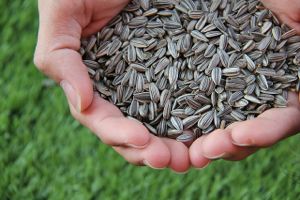If you’re making the commitment to NaNoWriMo this November, you can bet that somewhere along the way, you’re going to hit a wall.
We’re talking about 30 days of motivating yourself to write perhaps more than you’ve ever written before. The goal is 50,000 words. That’s about 1,666 words a day, and if you miss a day, you face double that. If you miss two days…well, it’s best if you don’t miss.
Totally do-able if all you had to do was work and go home and write. But most of us have families and other responsibilities that inevitably, will interfere with even the best-laid plans. Then there’s the whole issue of fatigue, which can be a big one—how do you keep your energy from flagging before the 30 days are up? And what about your motivation, when self-doubt interferes, and you start to lose your faith in your story?
When you think about it, this event is about more than outlining in advance or thinking ahead about your characters. It’s about you, your endurance, and your ability to keep yourself going. To help you navigate the physical, mental, and emotional obstacles you’re likely to face, here are some tips. Good luck!
 NaNoWriMo Tip 1. Don’t neglect your exercise.
NaNoWriMo Tip 1. Don’t neglect your exercise.
When you’re going all in for NaNoWriMo, you really need to view the event as something akin to a half marathon, because it will take just as much out of you, probably more considering the creative/mental element.
That means you have to commit to daily exercise (if you haven’t already). Studies have found that exercise reduces fatigue and increases energy, so if you find yourself slowing down before your writing session, go take a walk or do some jumping jacks. It will help. Meanwhile, stick with your daily workout routine no matter what. You can’t afford to go without exercise when you’re pushing yourself this hard.
 2. Sleep at least 7 hours a night.
2. Sleep at least 7 hours a night.
Unfortunately, sleep is often one of the first things to go during NaNoWriMo. Bad idea! When you get 6 hours or less, it throws your whole system out of whack. Your hormones become unbalanced, which makes you hungrier, and creates cravings for high-fat, high-sugar foods. The more of these you eat (and it’s harder to resist when you’re tired), the more tired you will be (see #3).
So try to go to bed and get up at the same time every day, even on the weekends. Turn off all the gadgets at least an hour before bed, and do something relaxing, like yoga or reading, to help encourage sleepiness. Keep your bedroom cool and dark, and avoid caffeine and alcohol before bed. (Alcohol may make you sleepy, but it disrupts deep REM sleep, which can mess with your creativity.)
NaNoWriMo Tip 3. Limit the high-fat, high-sugar foods.
High-fat foods take longer to digest, and high-sugar foods spike blood sugar levels—both of which sap your energy. High-sugar foods can also kill your creativity. (Read more about that here.)
If you’re having a craving for something sweet, go for dark chocolate, fruit with whipped cream, or low-cal options like Jell-O or a small serving of cookies. This is not the time for heavy, sugary treats.
 4. Eat energizing foods.
4. Eat energizing foods.
Most of us need some tasty motivation when we sit down to type. To avoid draining your energy, choose foods that will sustain you.
Some really good options include nuts and seeds, popcorn, fruit (especially berries), hard-boiled eggs, whole grain cereal, and yogurt. For more healthy munchies, read this.
NaNoWriMo Tip 5. Get your writing in as early as possible.
There are several benefits to this. First, if you write first thing in the morning, you’ll still be half asleep, which means your inner editor is less likely to interfere—a good thing. Second, as long as you go straight to the keyboard (and don’t answer emails first or something), you’ll be less likely to be disturbed, and you’ll get the writing done.
Sticking to your daily commitment will lead to a sense of accomplishment, and help inspire you to go at it again the next morning.
 6. Drink enough water.
6. Drink enough water.
May seem silly, but even slight dehydration can cause fatigue, and you can’t afford it this month. It can also cause mood swings, which could affect your decision-making skills.
Try to get about 8 cups of water a day, and if you’re dragging, enjoy a nice, cool glass. Add lemon, lime, cucumber, or strawberries to liven it up.
NaNoWriMo Tip 7. Use coffee if you like.
Doctors used to warn us away from coffee, but now we have evidence that it has a lot of health benefits, including potentially reducing the risk of Alzheimer’s disease and depression. (Read more about coffee’s health benefits here.)
Just be careful not to overdo it—for most, that means no more than four cups a day. Too much caffeine can cause the jitters, headaches, and stomach upset.
 8. Choose energizing teas.
8. Choose energizing teas.
Coffee is a fine choice for a pick-me-up, but don’t overlook the benefits of tea. You can get a little caffeine from the green and black types, as well as with yerba mate, without overdoing it, or you can go completely caffeine-free with herbal teas.
Good, energizing options include ginger, ginseng, gingko biloba, and rosehip. Avoid lemon balm, rooibos, lavender, and chamomile, as they will have the opposite (relaxing) effect.
NaNoWriMo Tip 9. Drink orange juice.
A recent study from researchers at Reading University found that the positive effects of orange juice lasted for hours after consumption, with those who drank it at breakfast feeling more awake in the afternoon than those who didn’t.
Men who consumed the orange juice also performed better on mental tests of speed and attention after drinking it down, whereas those who drank sugary water that looked and tasted like orange juice didn’t experience these benefits.
 10. Get help.
10. Get help.
We think we can do it all, but often the demands of NaNoWriMo mean that something has to give. Maybe other family members can pitch in, or you can take a break from certain duties for a short time.
Don’t fall into the trap that you can do it all, as that is likely to lead to failure. Hire a babysitter if you need to, and get someone to take your place at events if required. You get the drift. Make some plans ahead of time to help ease up your schedule for those 30 days.
NaNoWriMo Tip 11. Do NOT make judgments.
You will be tempted, but you must not make judgments on your story. You must simply write, as if following a path through a jungle with an unknown destination. You have to get to the finish line, and that’s all.
When you start thinking those thoughts that we all think at one time or another (this story isn’t working, it’s crap, there’s no sense in finishing it), ignore them. Make a conscious effort to shut them off and keep writing.
 12. Practice daily motivation.
12. Practice daily motivation.
What motivates you? Does it help to promise yourself a reward each week for your completed word count? Or are you more likely to want to share your progress with other writers?
Think about how your mind works. What inspires you to keep going? Usually it’s one of three things: people, power, or achievement. (Read more about your motivation style in Overwhelmed Writer Rescue.) Once you know your style, you can work more motivation into your schedule this month.
Some ideas:
- If you’re motivated by people and relationships, share your progress with writing friends either in person or online.
- If you’re motivated by achievement, create a chart and write down your word count every day (or use the recording tools at NaNoWriMo.org). Mark when you reach each of the 10,000 word milestones. Consider rewarding yourself at those points with something you enjoy, like a trip to the movies or a new book you’ve been wanting.
- If you’re motivated by power, consider posting parts of your story as you go on your website or blog, or share your experiences with the project in a series of blog posts.
NaNoWriMo Tip 13. Relieve stress every day.
Stress kills creativity. (Read more about that here.) That means you need to keep your stress under control during NaNoWriMo.
That could be a problem if the shi—hits the fan, as they say. The best thing you can do is work a daily stress-relieving activity into your life. Maybe you go to a yoga or dance class, spend time with a good friend, walk the dog, journal, or knit. Whatever your choice, just make sure you make time to do it so you can keep your stress levels down.
 14. Slow down…literally.
14. Slow down…literally.
In addition to relieving stress daily, you can also promote relaxation during your writing sessions. A really easy way to do this is to spend the first five minutes of your session in slow motion. Exaggerate every move you make, from opening up your laptop to taking a drink of your tea.
When you’re stressed and under-the-gun, you “feel” pressured. To change this feeling, you have only to give your body signals that say, “It’s okay, we have all kinds of time.” When you physically slow down, your body gets that message right away, and your brain naturally relaxes so you can focus on your story.
NaNoWriMo Tip 15. Focus faster.
Maybe you have only 15 minutes to get some words in. Instead of assuming it’s useless, train your brain to focus faster and you’ll be amazed how much you can get done.
First, shut off all distractions, including your cell phone, television, and anything else that may draw your attention. Use noise-cancelling headphones if you need to. Isolate yourself, and make sure you won’t be disturbed. Then direct your mind to the scene in front of you and type without stopping until your time is up.
 16. Plan for the inevitable catch-up times.
16. Plan for the inevitable catch-up times.
Most writers have some days during the month where they aren’t able to write. (If you’re able to get to it every day, you’re one of the rare few!) That means you’re going to have days where you have to play “catch up” and write double or triple the words.
The first danger is that you’ll feel discouraged. “How am I going to write that much?” you may wonder. Instead of focusing on the word count in front of you, focus on just one thing: immersing yourself in the story.
You’ve likely had times when the writing flowed and you managed thousands of words in a short period of time. That’s what you’re going for here—that total flow. Follow the instructions in tip #15 to be sure you won’t be disturbed, get yourself some tea or orange juice and a healthy snack, and slow down your movements.
Relax. Remember that writing is fun. Allow yourself to go into the story. The more you can lose yourself, the easier it will be to make up those words.
NaNoWriMo Tip 17. Resist the pressure chamber.
It’s easy to fall into the trap of pressuring yourself during this month. “I have to think of something brilliant. I have to come up with new ideas. This scene has to sparkle.”
This sort of thinking will only sabotage your progress, and will likely make finishing near impossible. Instead, do the opposite—imagine this is just practice. Nothing serious. In fact, tell yourself you’re not even planning on ever submitting this story. This is just your chance to see if you can do it, and to challenge yourself. Whatever comes of it doesn’t really matter.
Writers need practice completing stories. Many write part of a novel, but then get discouraged and abandon it, only to start another new one that they’ll never finish. NaNoWriMo gives you the chance to write a complete novel in 30 days.
Use the challenge as practice for this, and don’t trouble yourself with the outcome right now. Then if you find that you have a workable story at the end of the month, it will be a pleasant surprise.
 18. Write to yourself when you can’t write anything else.
18. Write to yourself when you can’t write anything else.
When you get stuck, instead of hammering your brain for a solution, go take a walk (it really helps—read more here). If that doesn’t work, it’s time to write to yourself—while taking on the persona of your muse.
It can feel weird at first, but it can really work. Make the document like a question and answer session on paper. Ask your question as you, and answer it as your muse. Before you answer as the muse, close your eyes and ask her (or him) to talk through you. (Just go with me here.)
So for example, the question might be: I don’t know what this character would do in this scene?
As the muse, I might answer: What does your character want in this scene?
You: She wants to get closer to the protagonist.
Muse: Knowing her, I would say she’d look for the fastest way to do that.
You: Hmm. So maybe she would walk right up and kiss him.
Muse: But she’s not that aggressive. She’d look for another way.
And you go on with questions and answers until something breaks through. If you really try to shift points of view with this exercise, you’ll likely find your solution. It’s a lot of fun when it works.
NaNoWriMo Tip 19. Be prepared to face the self-doubt monster.
Assume that sometime during the month, the self-doubt monster will raise its ugly head. (Read more about him here.) Most likely, it will show up when you’re in the middle of the novel—always the most difficult place.
The self-doubt monster’s main goal is one thing: to get you to stop writing. The best method to deal with it, therefore, is to write. Realize that all writers face this demon, and it’s completely normal—just something else you need to ignore along the way.
Giving yourself a pep talk may also help: “Come on, you can do this. Ignore those negative thoughts. It’s just jabbering. When you finish this novel on day 30, you’ll realize how powerless they are.”
 20. Keep the goal visible.
20. Keep the goal visible.
Remember—the goal is 50,000 words. They don’t have to be perfect. They don’t need to grammatically correct. The plot doesn’t have to be seamless, or the characters fully developed. The setting doesn’t have to be stunning, or the climax heart-pounding, though you may accomplish any or all of these things.
Keep your eye on the goal. Chart your progress. Use sticky notes to post your accomplishments around the house if you like. Create a collage that reminds you what you’re going for. Put encouraging wallpaper on your desktop or laptop screen. Send motivating letters to yourself in the mail.
Do what you need to do to get those words down. This is an endurance event, a writing marathon. Your form doesn’t matter, and neither does your outfit. Good shoes, though, are critical, so take care of yourself as you go, and good luck!
What tips do you have for winning NaNoWriMo?
Sources
Alharbi, M. H., D. J. Lamport, G. F. Dodd, C. Saunders, L. Harkness, L. T. Butler, and J. P. Spencer. “Flavonoid-rich orange juice is associated with acute improvements in cognitive function in healthy middle-aged males.” European Journal of Nutrition 55, no. 6 (2015), 2021-2029. https://www.ncbi.nlm.nih.gov/pmc/articles/PMC5009163/.
Schmidt, E. “This is your brain on sugar: UCLA study shows high-fructose diet sabotages learning, memory | UCLA.” Last modified May 15, 2012. http://newsroom.ucla.edu/releases/this-is-your-brain-on-sugar-ucla-233992.
“Cranky today? Even mild dehydration can alter our moods,” University of Connecticut, February 17, 2012, [Press Release], http://www.eurekalert.org/pub_releases/2012-02/uoc-cte021712.php.











Such great advice, Colleen! I don’t do NaNo, but, with a few modifications, these suggestions apply while writing/editing/promoting in general. Thanks so much.
Thanks, Pam! Happy writing. :O)
I’m doing NaNoWriMo again this year and hopefully will get past the halfway mark this time. Setting the pattern of writing every day in November gets me in the habit for the winter after having goofed off way too much over those beautiful summer days. Without the temptation of the garden and the sunshine, I do get more done.
Great idea, Pat. I zero in more on fiction writing in the fall/winter, too.
I don’t do NaNoWriMo, although I have friends who do (my job is to help prop them up on December 1) — however, these are wonderfully excellent methods to use with any writing project of any length. Thanks!
Thanks, Anna! Good luck with the propping up! :O)